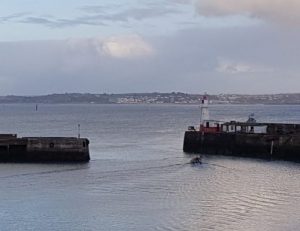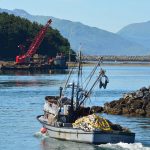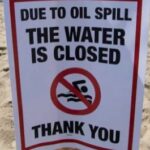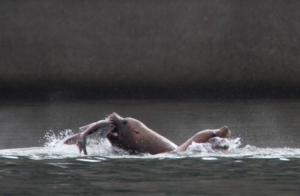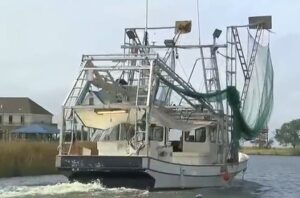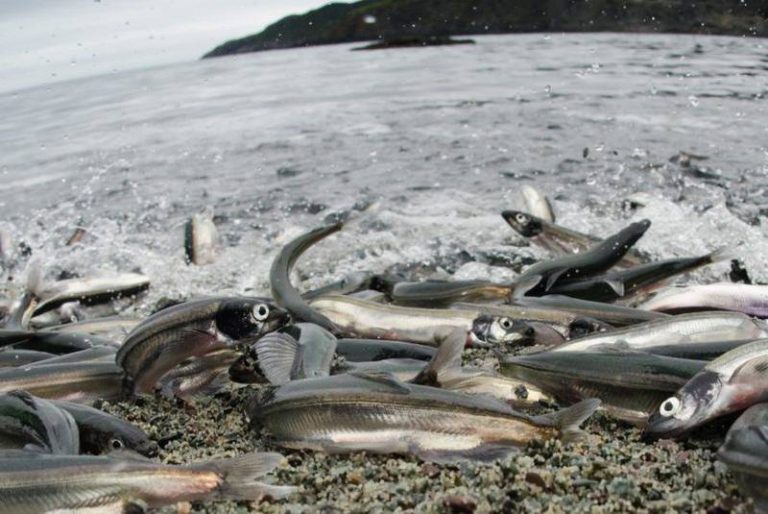Monthly Archives: December 2018

Fishermen unite to sue big oil
Almost a month has gone by since fishermen in California and Oregon filed suit against big oil in California’s Superior Court, demanding compensation for damages done to the fishing industry. The lawsuit is colloquially being called the crabbers’ suit because many of the members making up the plaintiff, The Pacific Coast Federation of Fishermen’s Associations, rely on crabbing for their livelihoods. The federation is suing the fossil fuel industry, including major companies like Chevron, ExxonMobil, BP, and Shell Oil, under the claim that it has known about the dangers of fossil fuels and climate change for decades but has deliberately hidden information from the public as well as spread misinformation campaigns. >click to read>12:35
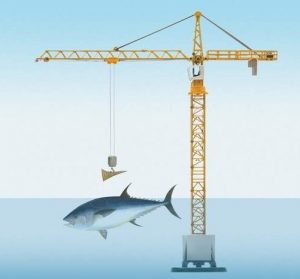
Can scientists build a blueprint for bluefin tuna?
For several years, biotech companies have been promising “clean” meat, “cell-based” meat, “cultured” meat – whatever you want to call it – as a way to enjoy the taste of chicken, pork and beef without the brutality of animal slaughter or the environmental damage of big agriculture. But what about fish? What about something as prized as buttery bluefin tuna, a delicacy that has become the forbidden fruit of the sea because of the many threats that have landed the fish on threatened and endangered species lists? Where are the Silicon Valley start-ups promising to free us from the guilt of gobbling down a finger of otoro sushi, the rich bluefin belly meat, without contributing to the decline of the fish or the decline of our own health via mercury that accumulates in the flesh of this apex predator?>click to read<07:51
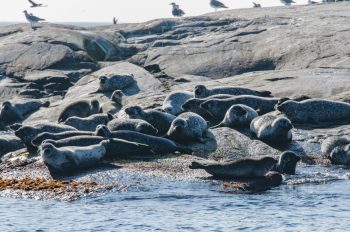
Increasing seal population will not harm largest fish stocks in the Baltic
It has long been debated whether the seal predation of fish play a major role in the fish decline in the Baltic Sea compared to human fishing. The debate escalated worldwide since conservation efforts to protect seals and fish-eating birds resulted in increased number of them. A new study taking into account human pressures on the environment, shows that the seals are not the main problem on commercial fish stocks in the open water of the Baltic Sea. “We currently have 30 000 grey seals in the Baltic Proper, but we can even have more than 100 000 seals and it will still not affect the amount of cod negatively as much as climate change, nutrient load and fisheries. (scratches head) >click to read<07:26
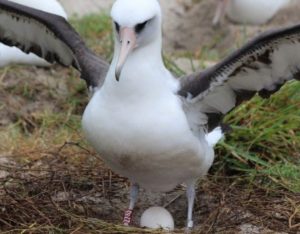
Wisdom the albatross: World’s oldest known bird lays another egg
The world’s oldest known bird is set to become a mother again – after raising at least 30 other youngsters. Wisdom the albatross has laid another egg at her nest site in Midway Atoll National Wildlife refuge on a tiny island about 1,200 miles northwest of Hawaii, in the Pacific Ocean. Biologists believe Wisdom is at least 68 years old, forcing them to re-evaluate the age which they expected albatrosses to live to. Albatross mate for life, but will recouple if a partner dies. The current age of her mate Akeakamai is not known, but the pair have been together since 2006. >click to read<21:39
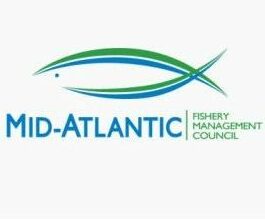
Mid-Atlantic Fishery Management Council meeting in Annapolis, MD Dec.10 thru 13, 2018
The public is invited to attend the Mid-Atlantic Fishery Management Council’s meeting to be held Dec.10 thru 13, 2018 at the Westin Annapolis, 100 Westgate Circle, Annapolis, MD 21401, Telephone 410-972-4300, Briefing Materials & Agenda Overview Agenda >click here< Attend Meeting with Adobe Connect >click here< Listen Live18:08

Fishing industry says no to net pen finfish
A group of fish harvesters and seafood industry entities is urging Congress to oppose attempts to legitimize open net pen finfish aquaculture, as proposed in fish farming legislation introduced in late September. The target of their Dec. 4 letter to Congress is the Advancing the Quality and Understanding of American Aquaculture Act, or AQUAA Act, introduced in September by Representatives Steven Palazzo, R-Miss, and Collin Peterson, D-MN. The House bill is a companion piece to legislation of the same name filed earlier in the year by Sen. Roger Wicker, R-Miss., to give the National Oceanic and Atmospheric Administration regulatory authority over fish farming in federal waters. >click to read<13:53

Tomorrow’s fishery
While fisheries biologists in the north are hard at work crunching numbers in an effort to develop their best guess at how many salmon will return to Alaska next year, Atlantic Sapphire is getting ready to load it first 800,000 salmon eggs into a massive, onshore “Bluehouse” in Florida. A “successful 90-day, on site hatchery trial has validated water quality and local conditions,” the Norwegian company said in a report to shareholders in mid-November.,,, The implications for Alaska commercial salmon fisheries are significant, but those who suggest the growing competition warrants some serious discussion as to how the 49th state retains value in its salmon resources are generally vilified as commercial fishery haters. >click to read<12:27

Campaign To Return WWI Steam Trawler
A group of trustees are seeking to return one of the only surviving steam trawlers used in the First World War. The Viola was built in East Yorkshire in 1906 and operated from Humber Dock as part of a fleet of boxing trawlers. However, after a career which included being used to defend the UK in the Great War and as a fishing vessel around the world, campaigners are now hoping to return the boat from a South Georgian beach to Hull, East Yorks. The trustees have since teamed up with a distillery, who have named their special brand of gin after the Viola. >click to read<11:24
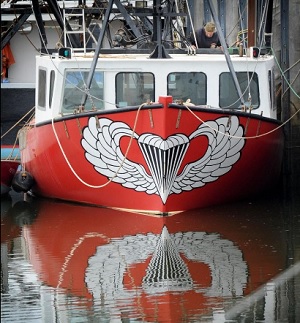
Jack Spillane: NOAA – A rogue agency gets set to shut down another New Bedford fishery
Scott Lang has been around fisheries issues for a long time. Both when he was mayor and afterwards. In 2013, Lang helped organize the Center for Sustainable Fisheries as a grassroots lobbying group to try to make sure New Bedford fishermen were not totally forgotten by NOAA. He’s worked for the industry for a long time and seen a lot of arguments from both sides back-and-forth over the years. But until last week, he said he had never seen NOAA make a decision to close a fishery with no science behind it. Not even questionable science, as for years NOAA has used for New England groundfishing limits in the opinion of many. >click to read<09:42
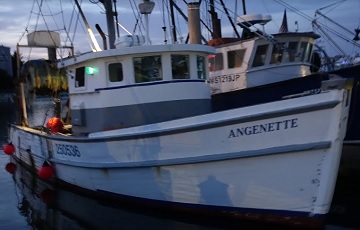
Au Revoir Angenette: Parting with an old friend
Forty-eight years is a long time to own a boat so there was no sweet sorrow when Capt. Ron Borjeson parted with his beloved Angenette, watching her steam over the horizon with a new owner at the helm. “My kids were devastated,” he told me. It was back in 1970 that Ron acquired the trim forty-five footer from the original owner. Built Down East in 1946 this stout wooden boat provided his introduction to commercial fishing. In those days Ron fished for cod, haddock and flounders out of Sandwich where he lived. “But then came all the regulations and rolling closures and we no longer had access to what was in our own backyard,” he said. “I had to go chase squid and fluke.” >click to read<18:05
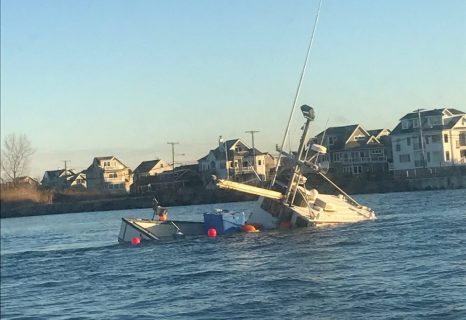
Coast Guard monitoring salvage of partially-sunken vessel in Manasquan Inlet, NJ
The Coast Guard is monitoring the salvage of a partially-sunken commercial fishing vessel in Manasquan Inlet, New Jersey, Saturday morning. Watchstanders in the Coast Guard Sector Delaware Bay command center received notification at 2 a.m. that the 44-foot fishing vessel Miss Kathleen allided with the northern Manasquan Inlet jetty and was taking on water with three people and a dog aboard. The Miss Kathleen’s captain intentionally grounded the vessel on Dog Beach, about 20 yards outside the channel. >click to read<16:09
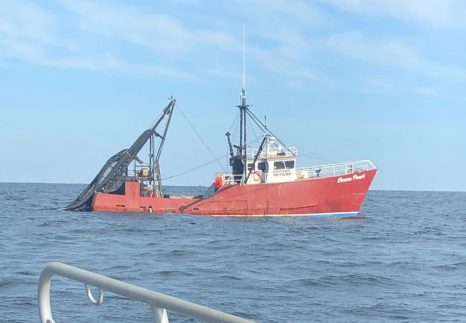
Coast Guard rescues 4 after boat catches fire near Cape May, NJ
The Coast Guard rescued four people from a life raft after a commercial fishing vessel caught fire about 16 miles southeast of Cape May, New Jersey, this morning. Crew members aboard the 75-foot fishing vessel Ocean Pearl activated Emergency Position Indicating Radio Beacons and abandoned ship after an electrical fire ignited on board around 10:30 a.m. Once aboard their life raft,,,, >click to read<15:12
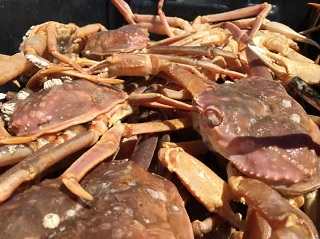
LETTER: Hope doesn’t float
I write in response to the article, “Twillingate fisherman concerned about proposed changes to crab stock classification” by Adam Randell,,, I agree the proposed precautionary approach for snow crab management is a step, only more a lateral one, and given the state of a multitude of commercial species including snow crab, DFO management and science are in desperate need of a gigantic leap forward. Fisheries management strategies should no longer look at species individually, but collectively through an ecosystem approach, and the introduction of the precautionary approach for snow crab does not take into account the hammer-like impact of a massive harp seal population or seismic testing. Ryan Cleary >click to read<13:44
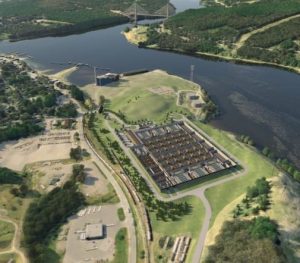
Proposed salmon farm rattles some in Belfast. Another in Bucksport draws few objections.
Belfast and Bucksport are separated by just 24 miles, and both are closely connected to the Penobscot River and Penobscot Bay. But you would never know that from the very different way that two proposals for large, land-based salmon farms have been received by members of their respective communities over the past year. In Belfast, opposition to Nordic Aquafarms’ proposed $150 million salmon farm is fierce and outspoken,,, In Bucksport, there is virtually no vocal opposition as Whole Oceans works on building its own $250 million indoor aquaculture facility on the site of the former Verso paper mill. >click to read<12:42
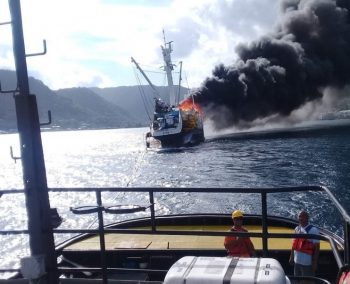
Response to fishing vessel fire in American Samoa continues, investigation underway
The Coast Guard in American Samoa is continuing to investigate the loss of the commercial fishing vessel Jeanette Friday. “The vessel poses minimal risk to residents and the environment,” said Lt. Al Blaisdell, supervisor, Marine Safety Detachment American Samoa. “Due to the depth of water, we understand there will be no salvage attempted. Any fuel remaining aboard if released will dissipate quickly. We are continuing with our investigation into the cause of the fire and the sinking.” Personnel from the MSD began interviews with the crew Thursday. Additional members from Coast Guard Sector Honolulu arrived Thursday to assist. The team will also interview the firefighters, tugboat crew and others to determine the cause of the fire, sinking, and timeline of events. >click to read<10:44
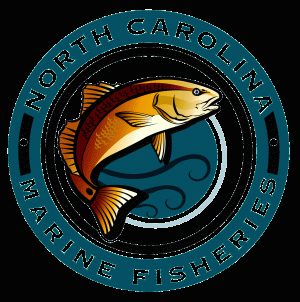
NC Fisheries Hurricane Florence disaster declaration granted
US Secretary of Commerce Wilbur Ross granted Governor Roy Cooper’s request for a disaster declaration related to damage to North Carolina’s marine fishing industry in Hurricane Florence. Recreational and commercial fishing are important economic drivers for our state and families along North Carolina’s coast. I appreciate Secretary Ross’s recognition of the damage to these vital industries caused by Hurricane Florence. We must rebuild smarter and stronger than ever and I will continue to work with our federal, state and local partners to bring recovery funds to those who need them,” said Governor Cooper.>click to read<10:23
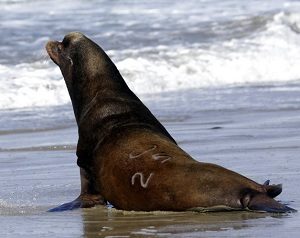
Senate Bill 3119 – Senate passes bill making it easier to kill sea lions
A bill that would make it easier to kill sea lions that feast on imperiled salmon in the Columbia River has cleared the U.S. Senate. State wildlife managers say rebounding numbers of sea lions are eating more salmon than ever and their appetites are undermining billions of dollars of investments to restore endangered fish runs. Senate Bill 3119, which passed Thursday by unanimous consent, would streamline the process for Washington, Idaho, Oregon and several Pacific Northwest Native American tribes to capture and euthanize potentially hundreds of sea lions found in the river east of Portland, Oregon. >click to read<09:17
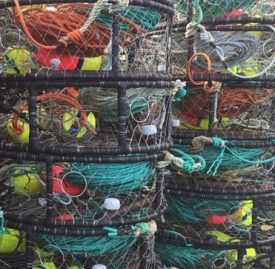
Crab season delayed again in Oregon – Crabbers on hold until at least Dec. 31
Oregon’s Dungeness crab fishery will not open until at least Dec. 31 after testing by state fishery managers revealed crabs are still too low in meat yield in some areas of the coast. The valuable commercial fishery traditionally opens on Dec. 1. In November, fishery managers announced the season would be delayed until mid-December because crabs were not plump enough. The most recent delay is not a big surprise, said Tim Novotny, the spokesman for the Oregon Dungeness Crab Commission, which advocates for the industry. “It was completely justified,” said John Corbin, a commercial fishermen in Clatsop County and chairman of the crab commission. >click to read<19:38
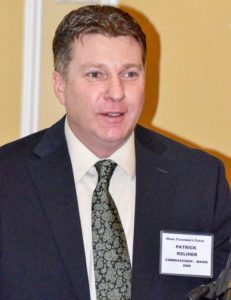
Maine fisheries groups support DMR Commissioner Keliher
In what must be a first in modern history, virtually every commercial fishing organization in Maine joined together to urge Governor-elect Janet Mills to keep Patrick Keliher on the job as commissioner of Marine Resources after she takes office in January. First reported in the Maine Lobstermen’s Association’s Landings, shortly after the election, the MLA, Downeast Lobstermen’s Association, Maine Coast Fishermen’s Association, Maine Aquaculture Association, Alewife Harvesters of Maine, Maine Elver Fishermen Association and the Independent Maine Marine Worm Harvesters Association signed a letter to Mills voicing the organizations’ unanimous support for the current DMR commissioner. >click to read<18:08
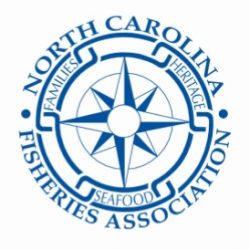
North Carolina Fisheries Association Weekly Update for December 7, 2018
>Click here to read the Weekly Update<, to read all the updates >click here<, for older updates listed as NCFA >click here<16:28
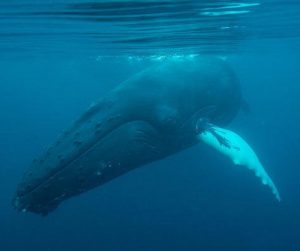
Whale entanglements exceeded average in 2017, report says
The number of large whales entangled in U.S. waters was a little worse than usual in 2017, but entanglements of right whales and in the Northeast were down. In a report released Thursday, the National Oceanic and Atmospheric Administration confirmed 76 large whales were found entangled in fishing gear or marine debris in U.S. waters in 2017. Six of the 76 entangled whales were found dead, 45 were presumed to be alive but still entangled, four had freed themselves and 21 were freed by good samaritans or members of the national Large Whale Entanglement Response Network. >click to read<14:35

Car was engulfed in flames after violent crash. Watch fishermen pull out the driver.
Jim Biggart says his brother Andy might not be alive today if it weren’t for the fishermen who rushed to pull him from his burning car. “My entire family will never be able to repay the debt to those people for saving Andy’s life,” The collision — which was so strong that the car immediately burst into flames — happened outside of the Nature Coast Marina in Hernando Beach. Kathryn Birren, who owns the marina, told the media company Storyful that the fishermen there heard a crash and went outside to look. >click to read<13:36
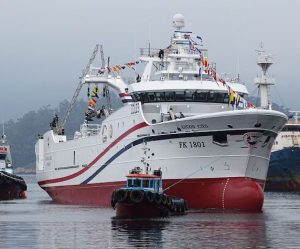
Falklands’ fishing fleet latest incorporation F/V Argos Cies Open Day
The stern trawler F/V Argos Cies opened its doors at FIPASS to the general public last Sunday as it became the latest new-build to join the Falkland Islands fishing fleet. Members of the public were given a tour of ship, as were invited guests during a reception held in the evening. The newest addition to the Falklands’ fishing fleet F/V Argos Cies was launched in Vigo, Spain on October 17 in front of 260 invited guests. From Argos Group Ltd a number of Directors, Shareholders, family members and staff travelled to Vigo to mark the occasion. >click to read<11:14
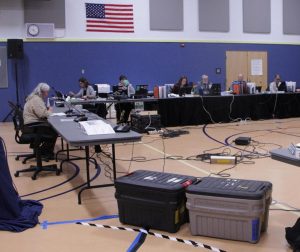
Alaska Board of Fisheries rejects permit stacking, expands subsistence opportunity near Dillingham
Among the highlights at the four-day meeting, the board passed proposals to expand subsistence fishing near Dillingham. Dip net subsistence fishing will be allowed in the area, and subsistence users will be allowed to fish at any time. Since the 1970s, subsistence has been restricted to a three-day schedule during peak sockeye season near Dillingham to in an effort reduce wanton waste. Many testified at the meeting that schedule is unnecessary and onerous. The Curyung Tribal Council applauded the decision.,, The board rejected all proposals related to permit stacking, allowing one person to use extra gear if they hold two commercial fishing permits. They also voted not to extend the length of commercial fishing vessels in the bay. >click to read<10:18
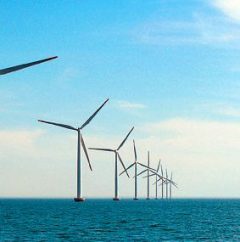
Working Group Nears Consensus on Transit Lanes for Fishing Vessels in Northeast Wind Energy Areas
Fishing industry representatives, offshore wind developer lease-holders, the National Marine Fisheries Service, the Bureau of Ocean Energy Management, and the U.S. Coast Guard, among others, joined RODA to continue an attempt to develop fishery transit lanes through the large group of Wind Energy Areas in federal waters off of Massachusetts and Rhode Island. The meeting was facilitated by the Consensus Building Institute. In addition to loss of access within the lease areas, commercial fishermen have concerns about their ability to safely travel across wind energy arrays to access other historical, traditional commercial fishing grounds. >click to read<21:26
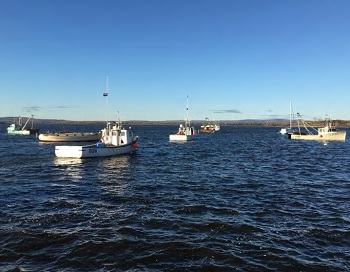
Northern Pulp alleges death threats in legal action against fishermen
Northern Pulp says protesters preventing survey boats from working have threatened to “hunt” and “kill” subcontractors trying to work on a proposed effluent pipe in the Northumberland Strait. The details of the escalating conflict between the workers and area fishermen are described in court documents filed by Paper Excellence Canada on Tuesday.The company is seeking an injunction against fishermen who have blocked its survey vessels, saying it must be allowed to safely finish the work that is on an urgent deadline. The company alleges the final straw was on Nov. 19, when 25 boats chased a survey team to the pier and intentionally created dangerous waves, endangering the lives of the contracted employees. >click to read<20:51
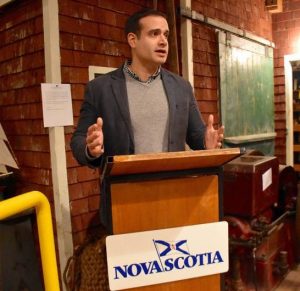
Bigger loans, faster turn-around time, by loan board to help N.S. fishing industry and younger fishermen
The fishery industry in Nova Scotia is worth an estimated $2 billion annually and one important area that updated Fisheries and Aquaculture Loan Board regulations are putting a high value on is younger fishermen and new entrants. The updated regulations were announced in Yarmouth on Dec. 6 and include such things as reduced loan approval wait times and increasing lending limits from $1 million to $5 million. The goal is to expand options and to eliminate financial barriers that have prevented people – particularly younger fishermen – from taking a risk in seeking big loans to get into the sector and/or improve their enterprises. >click to read<19:40

When All Hell Breaks Loose: Years after Deepwater Horizon, Offshore Drilling Hazards Persist
This is part one of a three-part investigation into offshore drilling safety. >Read part two here. Read part three here.< They are known as the “last line of defense” against an offshore drilling blowout and uncontrolled spill. They are supposed to save the lives of oil workers and protect the environment. But, as the Trump Administration proposes weakening safety requirements for these critical defenses, a Project On Government Oversight investigation found that they are dangerously vulnerable to failure. In an emergency, the defenses known as “blowout preventers” are meant to choke off the flow of highly pressurized gas and oil rising through well pipes from deep beneath the ocean floor. However, far from being fail-safe, blowout preventers have failed in myriad and often unpredictable ways. So have the people responsible for maintaining and operating them. >click to read<17:42
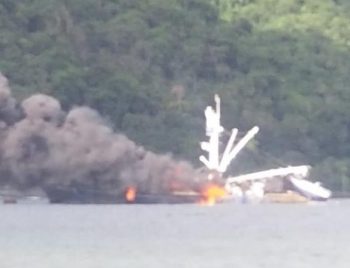
Fishing boat burns in American Samoa harbour
A fishing vessel was on fire in Pago Pago harbour in American Samoa today. The purse seiner, Jeanette, which only docked two days ago and reportedly had still to unload its cargo, was smoking at the wharf this morning. Initial attempts were made to fight the fire while it was docked but the vessel was later towed out into the harbour and it appeared to still be burning late into the afternoon. >link< Coast Guard, local agencies respond to vessel fire in American Samoa – >click to read< 13:45






